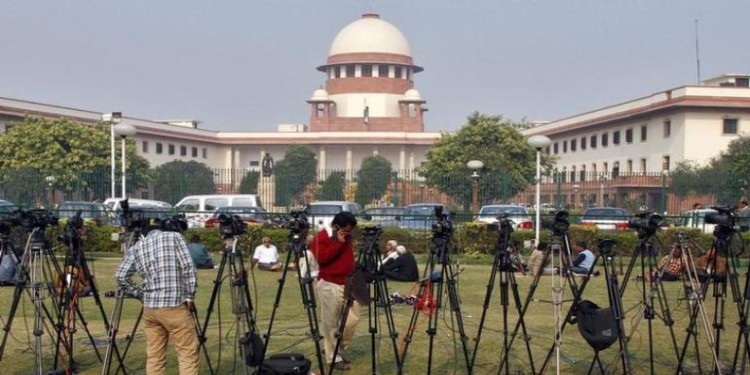Karnataka hijab ban
NEW DELHI, Oct 13:
The Supreme Court on Thursday delivered a split verdict on the ban on hijabs in Karnataka’s educational institutions, referring the sensitive matter to the chief justice of India for constituting a larger bench.
While Justice Hemant Gupta dismissed the appeals against the Karnataka High Court Court, which refused to life the ban and held that the hijab is not part of the “essential religious practice” in Islamic faith, Justice Sudhanshu Dhulia allowed the pleas and said wearing the hijab is ultimately a “matter of choice”.
“There is divergence of opinion,” Justice Gupta, who was heading the bench, said at the outset while pronouncing the verdict on a batch of 26 petitions.
He said he had framed 11 questions in his judgement.
In view of the split verdict, the bench directed that the appeals against the high court verdict be placed before the CJI for constituting an appropriate larger bench.
In Justice Dhulia’s view, the high court had taken a wrong path and wearing the hijab is “ultimately a matter of choice, nothing more, nothing less”.
“The main thrust of my judgment is that this entire concept of essential religious practices, in my opinion, was not essential for disposal of the dispute,” he said.
Stressing that his focus was on education of the girl child, especially in rural areas, Justice Dhulia observed, “Are we making her life any better.”
While allowing the appeals against the high court verdict, Justice Dhulia said he has quashed the state government’s February 5, 2022 order banning clothes that disturb equality, integrity, and public order in schools and colleges.
On March 15, the high court had dismissed the petitions filed by a section of Muslim students of the Government Pre-University Girls College in Karnataka’s Udupi seeking permission to wear the hijab inside classrooms, ruling that it is not a part of the essential religious practice in Islamic faith.
The apex court had reserved its verdict on the pleas on September 22 after hearing arguments in the matter for 10 days.
During the arguments in the top court, several counsel appearing for the petitioners had insisted that preventing Muslim girls from wearing the hijab to the classroom will put their education in jeopardy as they might stop attending classes.
Some advocates had also argued that the matter be referred to a five-judge constitution bench.
Counsel appearing for the state had argued that the Karnataka government order that kicked up a row over hijab was “religion neutral”.
Insisting that the agitation in support of wearing hijab in educational institutions was not a “spontaneous act” by a few individuals, the state’s counsel said in the apex court that the government would have been “guilty of dereliction of constitutional duty” if it had not acted the way it did.
The State Government’s order of February 5, 2022 was challenged by some Muslim girls in the high court. (PTI)


